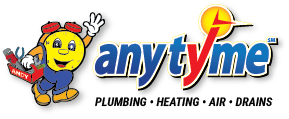Simple Rules You Have to Follow for Home Plumbing
Plumbing is a learned skill, and often mistakes are made because the home handyman does not have the knowledge of the proper tools, compounds or pipe for the job. All plumbing systems get clogs eventually and a lot of time can be saved on a plumbing job if you follow a few simple rules.
You can fix the plumbing problem and learn how to repair plumbing problems yourself if you have the right tools, know the technique, and you are prepared to do it. The tools aren’t all that expensive, and sometimes can be rented, but if after a few attempts you can’t get the clog loose, call a San Diego professional plumber.
Plumbing Product Tips
On the market today there are a lot of new products for every plumbing need, which can work well with every kind of pipe. There are several different types of connectors that remove any chance of leaks, can eliminate the need for high-temperature propane torches and can eliminate the learning curve for soldering.
Most used pipes today are: rigid copper, flexible copper, black iron pipe, rigid plastic PVC, CPVC pipe, ABS (acrylonitrile butadiene styrene), PEX (Crosslink Polyethylene), kitec, polybutylene, CSST for gas and galvanized steel. When you are plumbing, you will have to follow a few home plumbing tips & simple rules and do it right the first time. The few rules you will have to know are: you will have to use safety precautions with the propane torch and solder, you will be needed good safety glasses and you will have to wear protective clothing.
In many homes the rigid copper is used for main water lines and you cannot twist rigid copper, because you have to solder on the joints and the tees together. You will have to put a soldering paste to the surfaces, so it can retard the oxidation when the copper is heated. You can use a modified acrylic polymer anaerobic in liquid form, because it is great for working in tight spaces where fire from a soldering torch might be a hazard.
Common Plumbing Tools
When the water stops draining the first thing you need is a plunger. You can use it on sinks, tubs, and toilets. Long flexible steel cable that is wound on a spool with a hand crank, called a “snake,” you can be used for plumbing. Or you can use a “closet auger” which is like a snake but is built just for toilets that has rigid shaft bent at the correct angles to go through a toilet trap. If you notice a small drip from the existing water in the line, you can put a slice of white bread, remove the crust, and roll it into a tight ball, and insert in the pipe and the drip will stop. After that just turn on the water and it can be washed away into the drain system.
The most common plumbing problem is that the pipe cleaner was not used when pvc pipes were connected and you will have to clean the connections with the proper cleaner or the proper glue for the type of pipe you are using. If your bathtub starts running slower, you will have to use a bent piece of coat hanger to takeout any hair and other debris that may be slowing or stopping the drain.
The most used plumbing tools are: sink auger, toilet or closet auger, flange plunger (toilet plunger), cup plunger (sink and tub plunger), teflon tape, adjustable pipe wrench, faucet valve seat wrench, faucet valve reseating tool, faucet Packing and pashers and tubing cutter.
Hopefully, these simple home plumbing tips will help you our when that plumbing disaster strikes! If you need additional plumbing help, call our professional local San Diego plumbers anytyme at (760) 477-0722.
